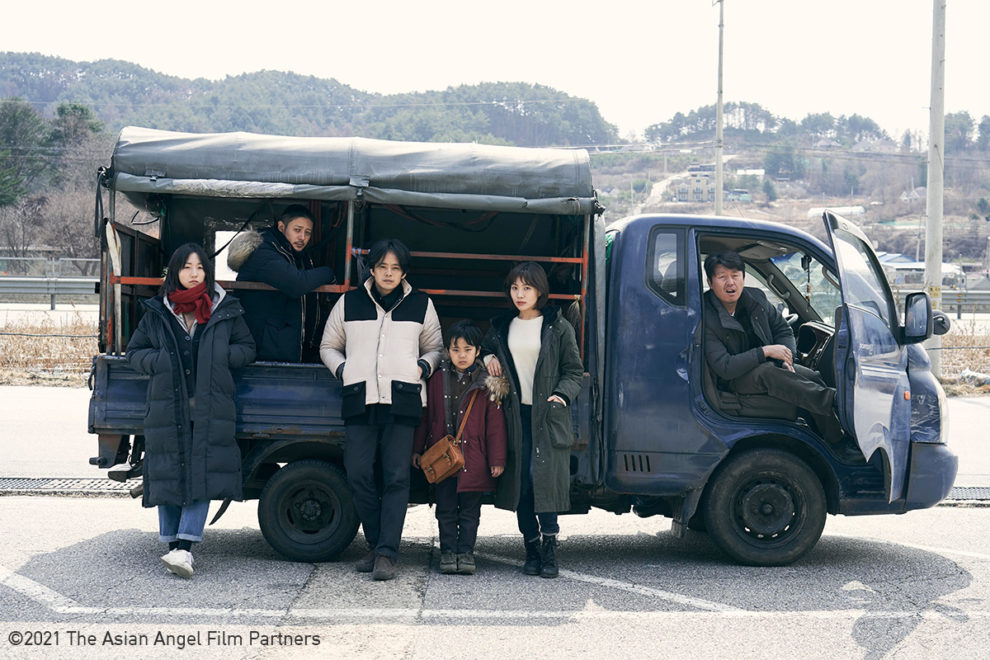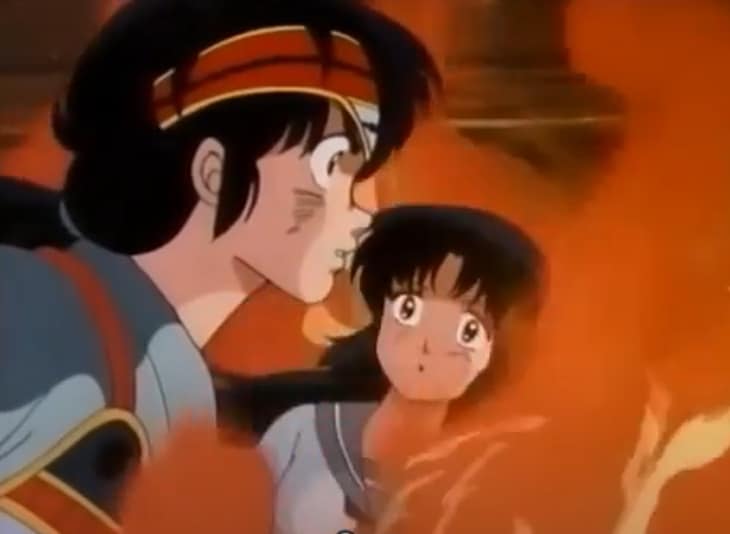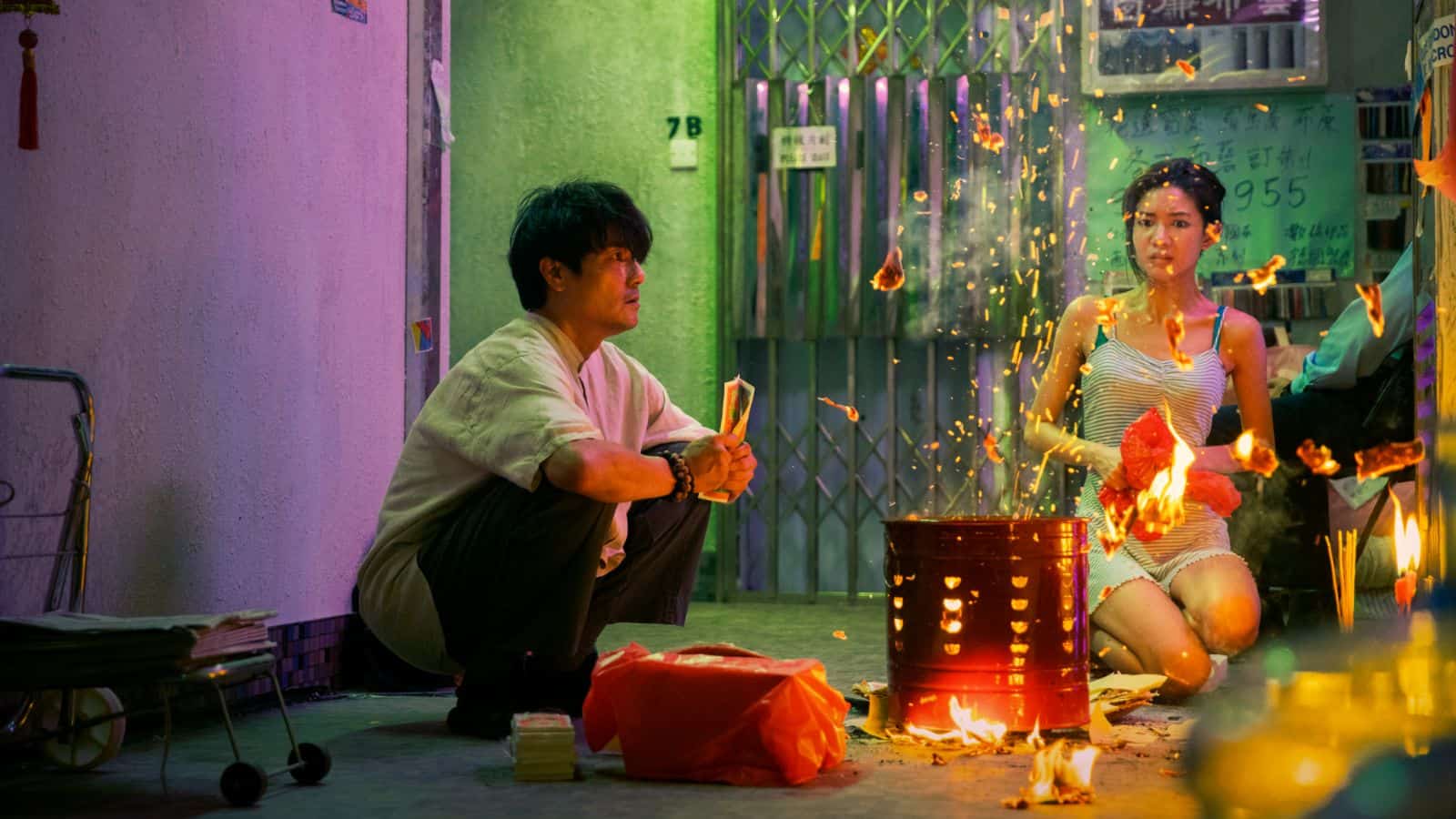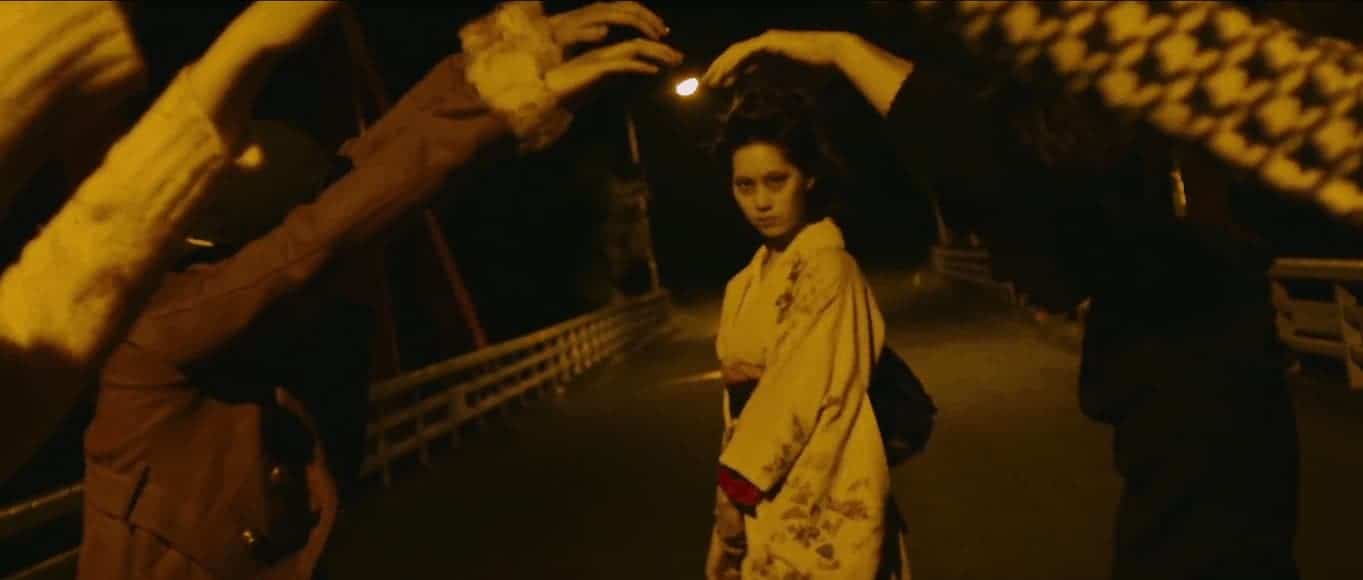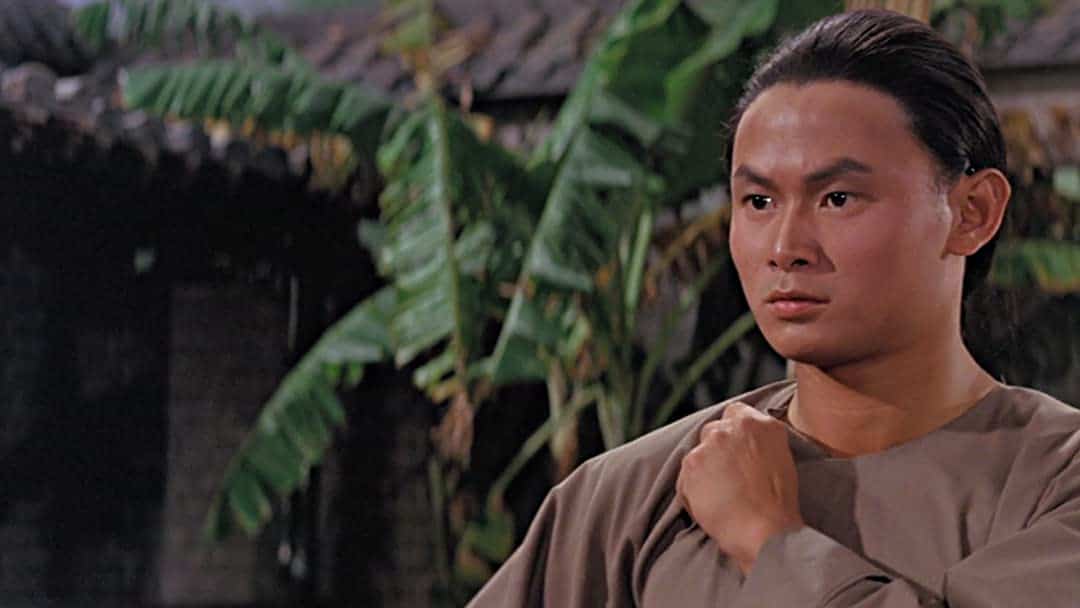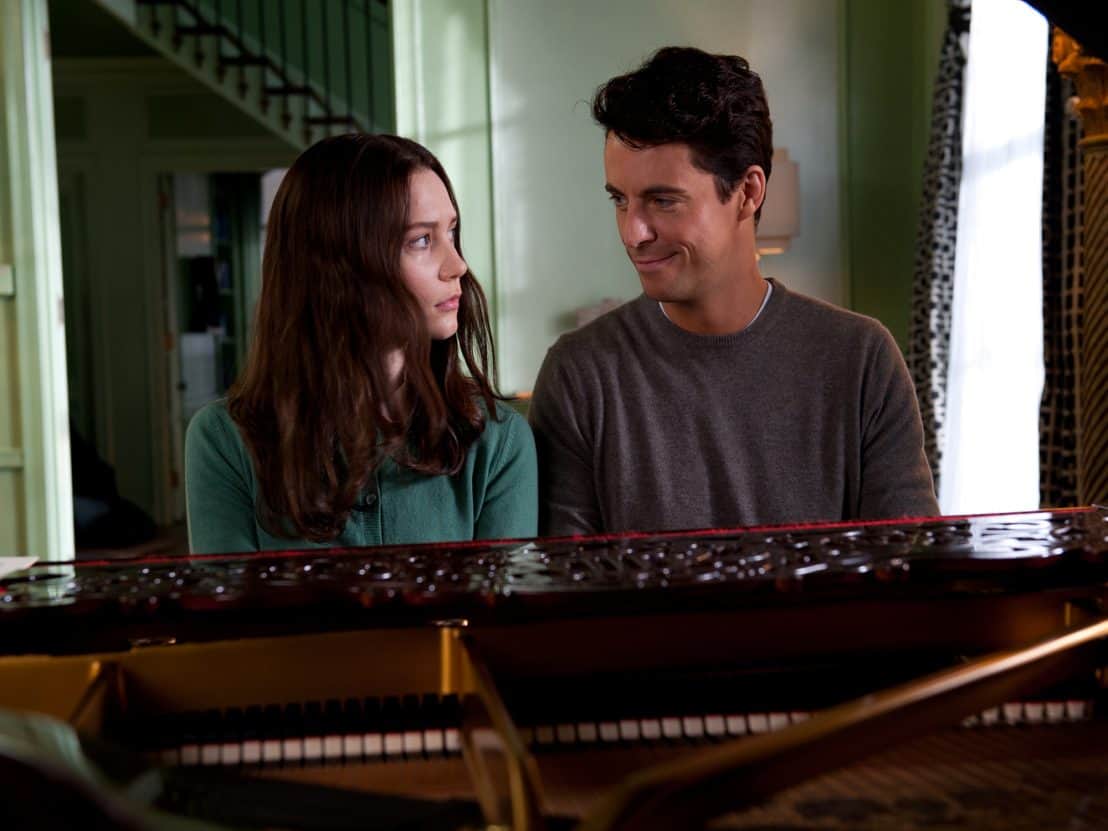Quite an interesting production for Yuya Ishii, since the film was shot exclusively in S. Korea, with a mixture of Japanese and Korean actors, with him actually building his narrative around this particular multicultural element.
The Asian Angel is screening at Osaka Asian Film Festival
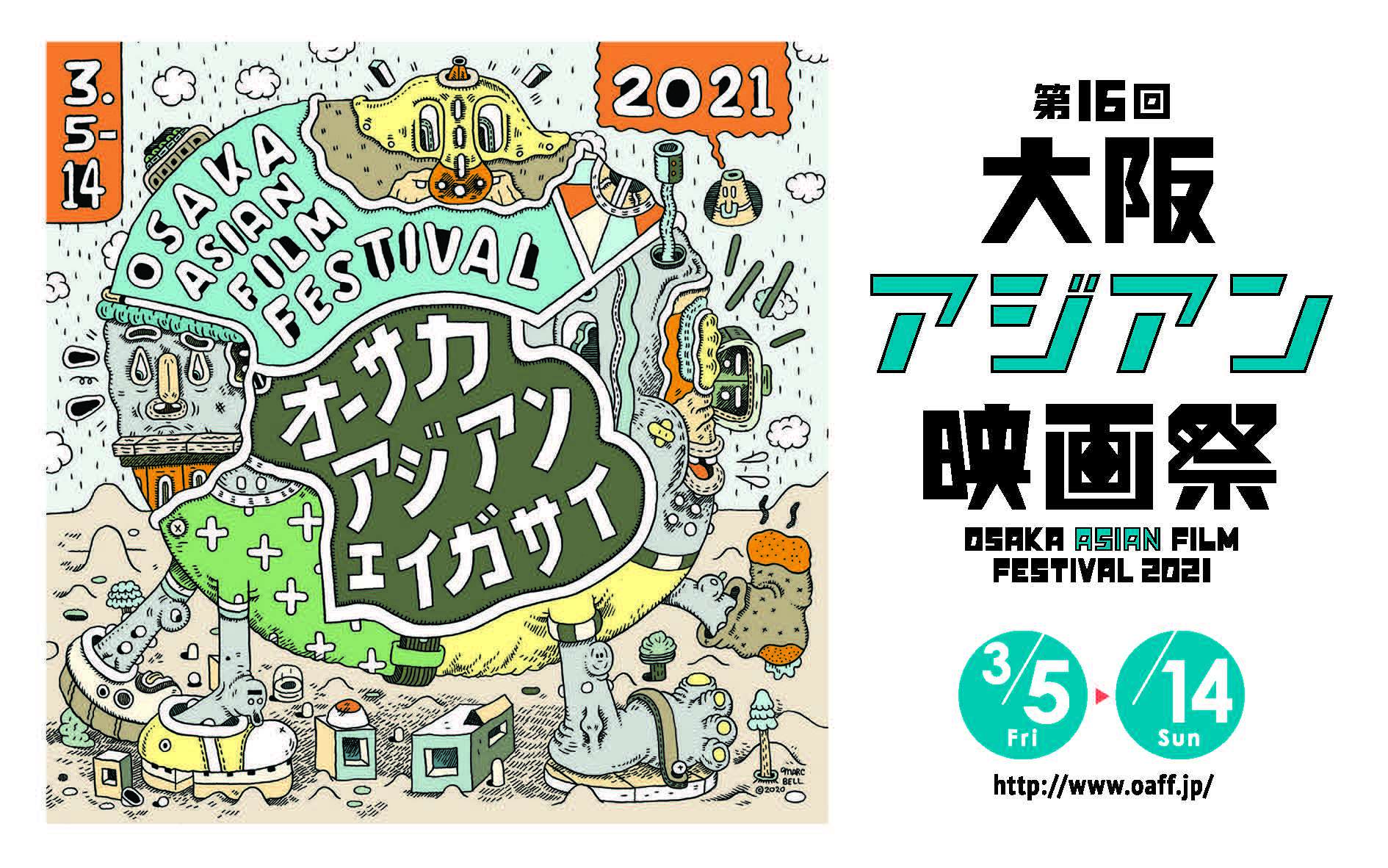
Tsuyoshi Aoki, a Japanese novelist whose wife has recently died, takes his 8-year-old son Manabu to Seoul, to work with Toru, Tsuyoshi's brother, who supposedly is doing rather well in Korea. However, the situation is not exactly as Toru has described, with Aoki realizing the fact from the beginning, since his first experience with his brother's work is being violently shoved out by his partner (who is actually played by Korean actor/director Park Jung-bum). Things get better eventually, although Toru reveals that the work he does is illegally exporting Korean cosmetics to Japan. However, business is actually blooming, and the quartet find themselves with enough money in their hands; that is until the partner decides to steal everything and disappear. Toru says he has another scheme, dealing in seaweed, and they board a train to the countryside.
Seol is a struggling Korean singer whose music is not selling, while she is involved in a relationship with the controlling president of her talent agency. With no parents to call on and an older brother and younger sister to support, Seol submits to the pressure her label puts her under to perform what they tell her, including singing in an mall where she accidentally meets the Japanese brothers. However, when she is dropped by her agency and dumped by her lover, she loses her purpose in life. A call from their aunt forces them to take a trip to her birthplace, in order to visit their parents' grave, on which the two sisters reluctantly agree. During their ride on the train there, they stumble upon Tsuyoshi, Toru and Manabu, and through a number of misfortunes and events, they end up travelling together.

Yuya Ishii directs a movie that initially shows the problems the differences between cultures can present, with the language emerging as an issue that is quite hard to overcome. As the film progresses, however, the focus changes to those elements that can connect instead of separate, with Ishii stating that even tragic occurrences, as death from cancer, for example, or the sense of being lost and without purpose in life, can actually bring people together, and provide a solution for the consequences of those issues.
The narrative follows a road-trip path eventually, with the many episodes featured highlighting the aforementioned comments, and also leading to the shaping of a family, essentially commenting on the concept and the bonds that form one, while also showing that blood relations are not an essential part.
The subtle romance between Tsuyoshi and Seol from the beginning is one of the focal points in this episodic approach, essentially allowing Ishii to both focus the narrative and make the aforementioned comments more relatable, with the phrase ‘Seeing the world through your eyes, I might come to like it a little more', actually synopsizing the whole movie.
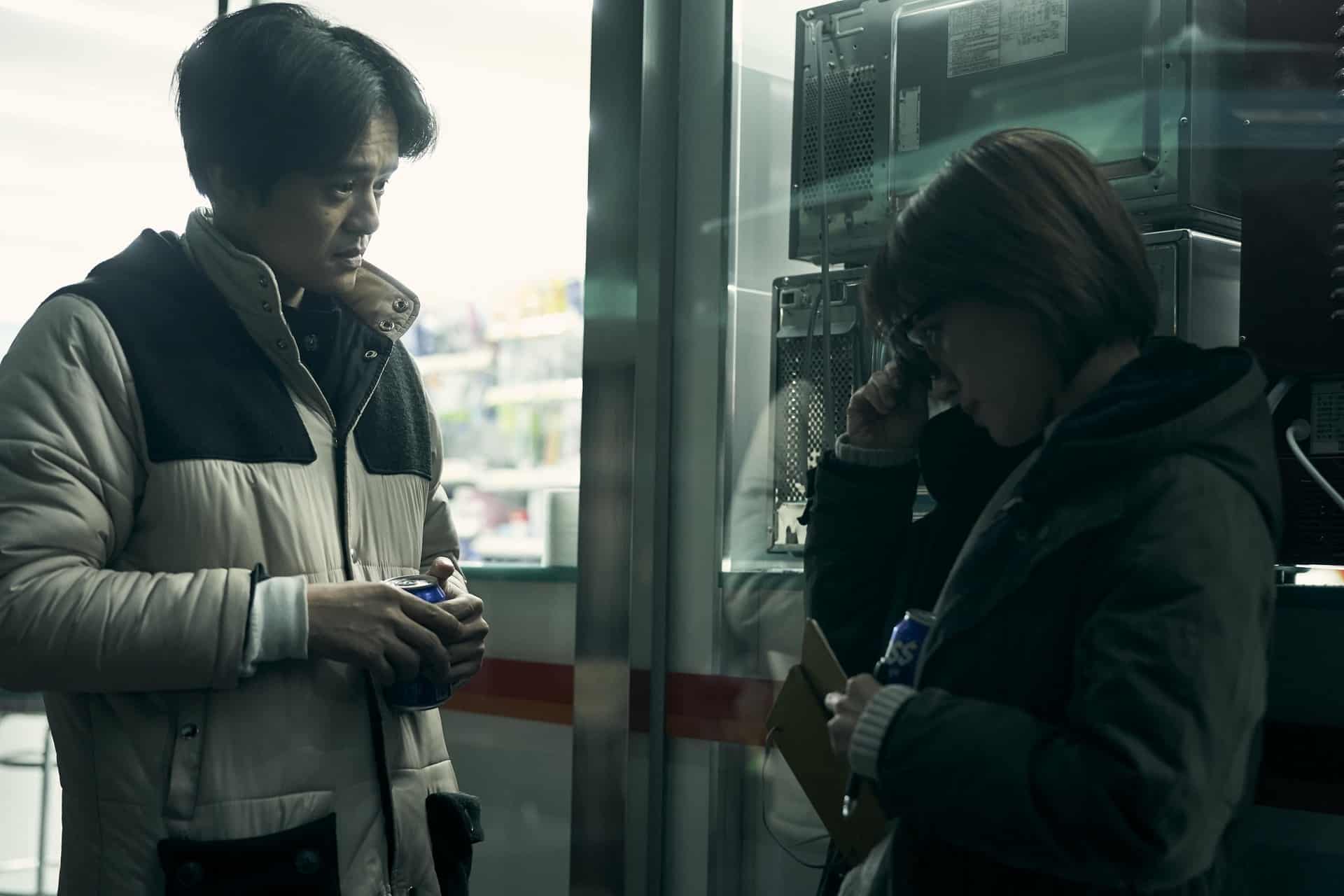
Some moments of surrealism could not be missing, and the whole concept of the biting angel seems a bit off, although in the end emerges as rather funny, with Tateto Sherizawa stealing the show once more. Furthermore, and in a tendency in Japanese cinema that has become quite tedious, the film lags significantly just before its ending, through a number of episodes whose existence and length seems to prolong the movie for no apparent reason.
Sosuke Ikematsu as Tsuyoshi and Moon Choi as Seol are quite convincing in the protagonist roles, although the latter somehow suffers from the aforementioned issues. The way their subtle romance unfolds is one of the best aspects of the movie, also highlighting a very difficult but quite successful chemistry. However, the secondary roles in the film are more impressive, even if their function is, mostly, to trigger events and advance the main story line. Joe Odagiri plays the aloof, kind-hearted opportunist with gusto, while Kim Min-jae as Seol's simple but protective and caring elder brother probably provides the best performance in the film. Lastly, Kim Ye-eun as the younger sister has a small, but quite crucial part, particularly in the way she is the one that always suggests something new in order for the company to avoid splitting, essentially saying aloud what everyone is thinking.
Kim Jong-sun's cinematography portrays the various episodes realistically, without any particular visual exaltation, in perfect resonance with the general aesthetics. The editing follows the usual, relatively slow pace of Japanese family dramas, which also suits the narrative, although a bit more trimming would definitely benefit the movie.
“The Asian Angel” is a tender story about all those things that can bring people together, and a rather entertaining film that benefits the most from the charisma and chemistry of its cast.


